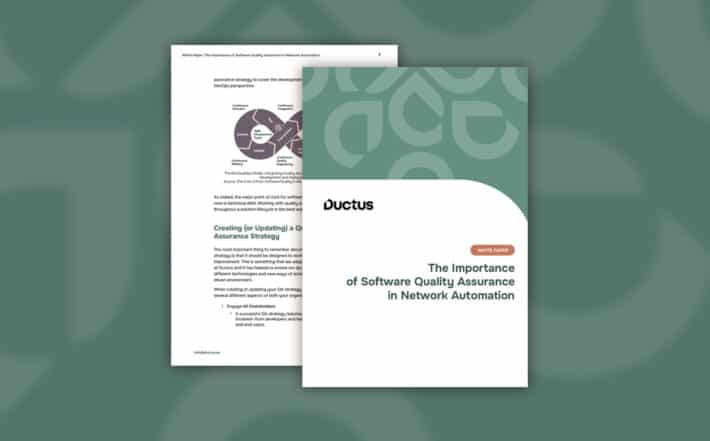
Network Automation
Most telecommunications operators recognize the risks of manual network operations, including inefficiency and limited service quality. The pressing question is no longer if automation is necessary but rather how to implement it effectively and to what extent.
With modern networks increasingly software-defined, the potential for automation is vast, though some approaches are more efficient than others. While many products and frameworks promise no-code or low-code solutions for network automation, the reality is that successful implementation still hinges on robust software development and system integration.
At Ductus, we specialize in guiding telecommunications operators through every stage of their automation journey – from strategy to implementation and beyond. Our proven expertise in network automation ensures you can unlock the full potential of your network with confidence.

There’s no technology without the right people and the right partners for the journey. We’re fortunate to have a strong partnership with Ductus.”
Joan Espin Garcia, Director of Network Platforms and Solutions Architecture, Colt
Advisory
No matter where you are on your automation journey, our tailored approach helps you develop a strategy that fits your unique needs.
Implementation
With extensive experience in software development and a proven track record, we deliver network automation solutions that are robust, scalable, and future-proof.
Support
Automation doesn’t stop at implementation. We provide ongoing support to ensure your solution continues to deliver maximum value.
Device Management Automation Platform (DMAP)
From high-speed optical routers to data center servers, DMAP simplifies device management across your network, driving efficiency and scalability.
Resources

Peter Sallenhag
peter.sallenhag(at)ductus.se
Phone: +46 70 571 05 82











